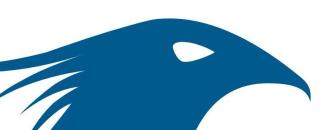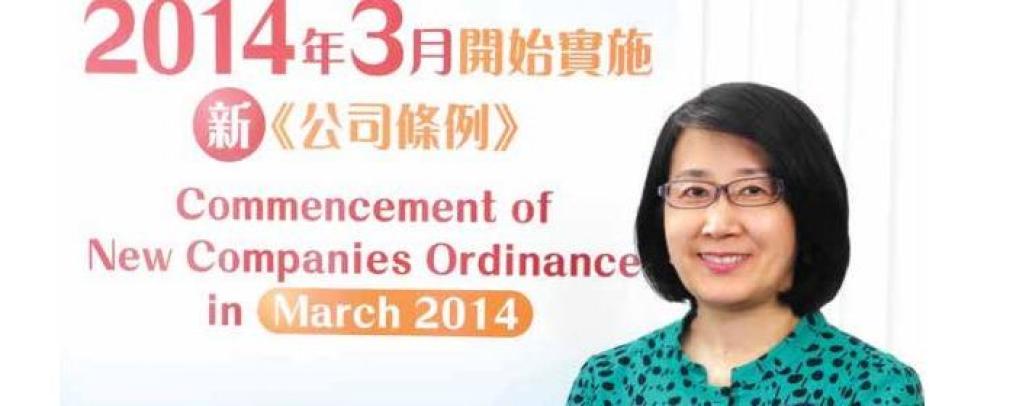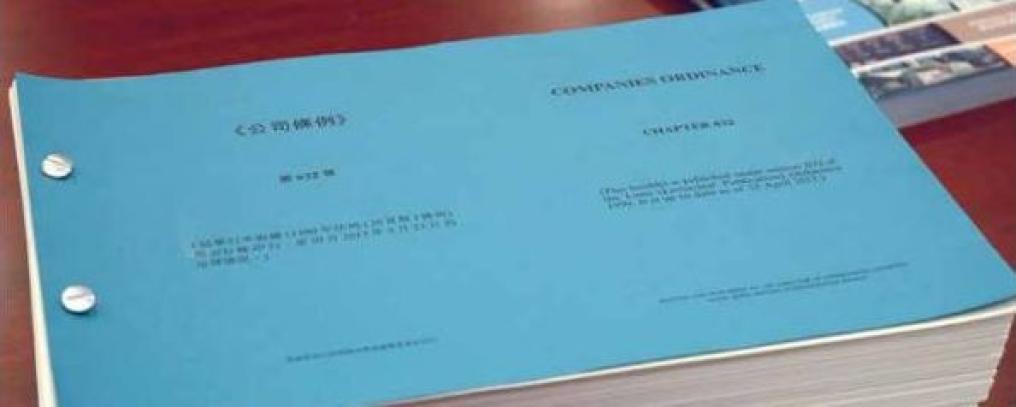The Hong Kong Institute of Chartered Secretaries (HKICS) has a well-known and well-loved icon in the shape and form of Sagittarius serpentarius, better known as the secretary bird, but what exactly does the secretary bird represent? How is the HKICS structured? What is its relationship with the Institute of Chartered Secretaries and Administrators in the UK and the Corporate Secretaries International Association globally? What role does it play in the development of the corporate secretarial profession in Mainland China? Starting from this month, CSj launches a series of articles seeking to familiarise readers with the structure and work of the HKICS. This first article in the series gives an overview of the Institute and takes a look at its history in Hong Kong.
In 1891 a group of 18 company secretaries got together in the UK to form the Institute of Secretaries. The body was granted a Royal Charter in 1902 to promote and advance 'the efficient administration of commerce, industry and public affairs’. The body was renamed in 1971 as the Institute of Chartered Secretaries and Administrators (ICSA) following a merger with the Corporation of Secretaries. International development has always been a focus for the ICSA. It opened its first overseas branch in South Africa in 1909. Subsequently, branches were opened in Australia, Canada, Hong Kong, Malaysia, New Zealand, Singapore and Zimbabwe – these later became divisions. The ICSA's history in Hong Kong dates from 1949. At that time it was an association of Hong Kong ICSA members. For two decades it remained an informal grouping, with members getting together for lunch when they had time, usually at the Hong Kong Club. There was a Management Committee made up of interested members for activity planning and lobbying. In the 1980s there was a strong growth in student numbers in Hong Kong. The Institute became an official branch (‘Association’) of the ICSA in 1986 and engaged a small full-time staff for routine administration activities, including administering the qualifying examinations. Funds from the ICSA paid the office rent and staff salaries. In 1990, following rapid growth in Hong Kong, Singapore and Malaysia, the ICSA International Affairs Committee (IAC), comprising an international membership from different territories, felt that it was time that more work should be devolved to the overseas Associations in Hong Kong, Singapore and Malaysia. The autonomy deal meant that these Associations now set their own membership fees, collected examination fees, set their own variant examination papers and paid a fee to London based on the size of membership in their locations. The Institute – then known as The Institute of Chartered Secretaries and Administrators in Hong Kong Ltd – bought its own office in Causeway Bay in 1990 and started expanding its membership services and research and advocacy work. The Institute gained local status as 'The Hong Kong Institute of Company Secretaries Ltd’ in 1994 (the Institute adopted its current name – 'The Hong Kong Institute of Chartered Secretaries’ – in 2005). The development meant that members still enjoyed membership of the UK Institute, while gaining an additional membership of the Hong Kong Institute. This arrangement has worked very well for the Institute, but it, along with other ICSA Divisions, lobbied for a number of reforms to the constitutional structure of the ICSA – principally, ending the UK's guaranteed majority of votes on the ICSA Council. In 2013, the ICSA (UK) agreed to these reforms and a number of amendments to the ICSA Charter and Byelaws are currently being effected. These will, among other things, mean that the UK, Republic of Ireland and Associated Territories (UKRIAT) will become an ICSA Division and the composition of ICSA Council is based on the proportion of the membership each Division represents.HKICS: an overview
The Institute's organisational structure (see graphic opposite) is focused on the three main areas of the Institute's work, namely: education, professional development and members’ services, in its three main arenas of work, namely: Hong Kong, Mainland China and internationally.Council
The Institute's Council is its highest decision-making body and sets its strategic direction (see the box above for the current Council membership). It meets six times a year and has its annual strategy meeting in January or February. The Council's committees are each chaired by a Council member. The committees report directly to Council and are responsible for implementing the Institute's strategic policies. The three principal Council committees are the:- Education Committee – comprising nine members and chaired by Polly Wong FCIS FCS(PE)
- Professional Development Committee – comprising 10 membersand chaired by Jack Chow FCIS FCS, and
- Membership Committee – comprising 11 members and chaired by Susie Cheung FCIS FCS(PE).
- Audit Committee, chaired by Paul Moyes FCIS FCS, which is principally responsible for monitoring and advising on financial reporting including the integrity, truthfulness and fairness of the view given by the financial statements of the Institute and the integrity of its financial systems and process, and
- Human Resources Committee, chaired by Past President April Chan FCIS FCS(PE), which is principally responsible for monitoring and advising on human resource requirements to cope with the objectives and development of the Institute in Hong Kong, Mainland China and internationally.
Secretariat, working groups and panels
The Institute's Council sets the strategic direction of the Institute but it is guided, particularly in technical areas, by experts and professionals serving on a number of panels and working groups (we will look at these in more detail in subsequent articles in this series). The Institute's operational work is carried out by the secretariat, headed by HKICS Chief Executive Samantha Suen FCIS FCS. The operational work in Hong Kong falls into three main areas: education, professional development and members’ services.- Education. The Institute's Education and Examinations Department comprises five staff members and is headed by the Department Director, Candy Wong. This team is principally responsible for recruiting and assisting students to qualify as Chartered Secretaries. This involves overseeing and running the two main routes into the Institute – the International Qualifying Scheme (IQS) examinations and the approved collaborative courses with three local universities. The education and examinations team also promotes the IQS, the Institute and the Chartered Secretarial profession to local undergraduate students. Other important areas of its work are attending to exemption assessment as well as disciplinary matters for students.
- Professional development. The Institute's Professional Development Department comprises six staff members headed by the Department Director, Lydia Kan ACIS ACS, together with Director of Technical & Research FCIS FCS, Mohan Datwani. Professional development is, of course, a fairly wide remit. This department, in addition to overseeing and managing the Institute's Enhanced Continuing Professional Development (ECPD) programme, also maintains regular contacts with governmental and regulatory bodies in Hong Kong and Mainland China to promote the Institute and the Chartered Secretarial profession in both territories.
3. Members’ services. The Institute's Membership Department comprises five staff members headed by the Department Director Cherry Chan. It is principally responsible for improving and maintaining members’ services and benefits, and catering for diverse members’ needs (excluding continuing professional development and publishing). This team is also responsible for overseeing and managing membership admission policies, processing applications and maintaining standards for acceptance to membership of Institute graduates, as well as processing and maintaining standards for acceptance to Fellowship status of Associate applicants. Another important area of work for the Membership team is attending to disciplinary matters and the setting, monitoring and implementation of codes of ethics and conduct for members.
A global profession
Mainland China
As mentioned above, the Institute's work is not confined to Hong Kong. The Institute has been gaining a growing presence and influence in Mainland China. The Institute's work in this area is overseen by its Mainland China Focus Group.
In 1996 the Institute became the first Hong Kong professional body to set up a representative office in Mainland China. The Beijing Representative Office (BRO) comprises: Kenneth Jiang FCIS FCS, BRO Chief Representative; Carrie Wang, Senior Manager; and two staff members. The BRO staff liaise closely with HKICS General Manager and Company Secretary Louisa Lau FCIS FCS(PE) in Hong Kong. The BRO implements the Institute's objectives in Mainland China, namely to:- establish and enhance the Institute's image and influence among Mainland stakeholders including regulators, board secretaries, Mainland companies, academics, and the public, and
- promote the professionalisation of board secretaries in Mainland China.
International links
The Institute also has a substantial influence beyond Hong Kong and Mainland China. The HKICS is part of a global profession of corporate secretaries and governance professionals, both through its role as the China division of the ICSA, and also through its founder membership of the Corporate Secretaries International Association (CSIA), which was launched in March 2010. The ICSA now has a worldwide membership of 45,000 plus 28,000 students globally. It has divisions in South Africa, Australia, Canada, Hong Kong, Malaysia, New Zealand, Singapore and Zimbabwe. Past President Natalia Seng FCIS FCS(PE), Chief Executive Officer – China and Hong Kong, Tricor Services Ltd, has been the China Division representative on the ICSA International Council for the past five years. Since 2014, the Institute's current President, Edith Shih FCIS FCS(PE), has been a member of the ICSA International Council. The CSIA, of which the HKICS was a founder member, has played an important role in forging closer ties among corporate secretaries and governance professionals globally. It currently represents approximately 100,000 practitioners in more than 80 countries. In 2013, the CSIA launched its Governance Principles for Corporate Secretaries, which were crafted with significant input from Hong Kong through the work of the Institute's Past President April Chan (who is also a Past President and council member of the CSIA). Moreover, last month the CSIA launched its Corporate Secretaries Toolkit for use in the training of corporate secretaries around the world.HKICS Council
Honorary officers- President – Edith Shih FCIS FCS(PE), Head Group General Counsel and Company Secretary, Hutchison Whampoa Ltd
- Vice-President – Ivan Tam FCIS FCS, Deputy Managing Director, Chevalier International Holdings Ltd
- Vice-President – Dr Gao Wei FCIS FCS, Board Secretary and General Counsel, Sinotrans Ltd
- Treasurer – Bernard Wu FCIS FCS, Honorary Chairman, Qianhai SAR Private Equity Investment (Shenzhen) Ltd Ex officio member
- Past President – April Chan FCIS FCS(PE), Company Secretary, CLP Holdings Ltd Council members
- Dr Eva Chan FCIS FCS(PE), Head of Investor Relations, CC Land Holdings Ltd
- Susie Cheung FCIS FCS(PE), General Counsel and Company Secretary, The Hong Kong Mortgage Corporation Ltd
- Jack Chow FCIS FCS, Managing Director – Private Equities, VMS Investment Group
- David Fu FCIS FCS, Company Secretary, Swire Pacific Ltd
- Paul Moyes FCIS FCS, Executive Director and Head of Practice Development Marketing & Communications, Director – Corporate Services, Tricor Services Ltd • Douglas Oxley FCIS FCS, Consultant, Conox & Associates
- Paul Stafford FCIS FCS, Corporation Secretary, The Hongkong and Shanghai Banking Corporation Ltd
- Polly Wong FCIS FCS(PE), Company Secretary and Financial Controller, Dynamic Holdings Ltd

What does the secretary bird represent?
The secretary bird, or Sagittarius serpentarius if you want the scientific designation, was adopted as the Institute of Chartered Secretaries and Administrators (ICSA) crest in 1896. It is not a creature of mythology, it is a very real, though highly unusual, bird of prey widespread across Africa. It is instantly recognisable by its eagle-like head and long crane-like legs. The adult bird can grow as tall as 1.4 metres – unusual enough for raptors – and it is largely terrestrial, hunting its prey on foot. Much has been made of its predilection for snakes, and venomous snakes are often on the menu, but its diet also consists of insects, small mammals and reptiles. The story of how the secretary bird became the icon of the Chartered Secretarial profession starts with its very striking crest of long black feathers. These were thought to give the birds the appearance of 'secretaries’ with quill pens tucked behind their ears. Rusell Day, the ICSA's first Secretary, suggested adopting the bird as the icon of the profession and its popular name clearly had something to do with the choice, though many of the bird's characteristics were thought to be a perfect match for the aspirations of the profession. These include its alertness and its loyalty to its partner (the birds mate for life). It has also been suggested that the secretary bird's most famous characteristic – its ability to prey on snakes – symbolises the Chartered Secretary's pursuit of high ethical standards.HKICS fact file
Legal status and office address: The Hong Kong Institute of Chartered Secretaries is a company limited by guarantee, and is incorporated and domiciled in Hong Kong. Its registered office and principal place of business is at 3/F, Hong Kong Diamond Exchange Building, 8 Duddell Street, Central, Hong Kong. Principal activities: The HKICS sets and holds international standard professional examinations and assists students to qualify as Chartered Secretaries and members of the Institute. It also promotes good governance and secretaryship. The Institute actively supports and protects the character, status and interests of its members, graduates and students. Membership: Students: 3,202; Graduates: 526; Associates: 4,790; Fellows: 503 (as of 10 April 2014) Affiliations: As mentioned in the main article, the HKICS is part of a global profession of corporate secretaries and governance professionals as a member of the Institute of Chartered Secretaries and Administrators (ICSA) and the Corporate Secretaries International Association (CSIA). The HKICS is a founder member of the CSIA and has played an important role in forging closer ties among corporate secretaries and governance professionals globally. The Institute is also a member of a number of local organisations, including:- the Hong Kong Coalition of Professional Services (HKCPS) – the HKCPS provides a platform through which professionals can meet with government officials from Hong Kong and Mainland China as well as with professionals from the other 10 body members
- the CPD Alliance – this grouping of 20 professional bodies in Hong Kong promotes, delivers and enhances continuing professional development, and
- the Institute also has Collaborative Course Agreements (CCAs) with three local universities – these provide students with a direct route to completing the International Qualifying Scheme (IQS) as CCA graduates are eligible to apply for full exemption from the IQS examinations.



